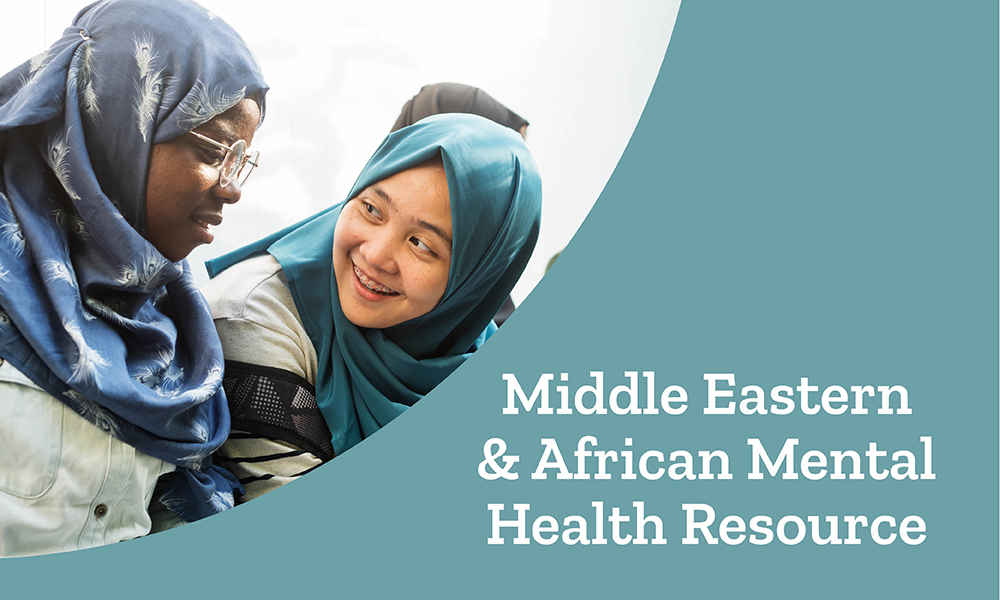Working with Middle Eastern & African Mental Health Clients
Online ResourcePrerequisites
You must complete the following courses before accessing this resource:
To access the above courses, you need to check your eligibility and how to register/enrol.
About this resource
This HTML online resource is a guide for healthcare practitioners who work with African and Middle Eastern clients in a mental health context.
The aim of the resource is to provide some information on mental health issues as they arise with these cultures specifically. It is not a stand-alone resource and it is assumed that the viewer has an understanding of the following from the cultural competency course "Module 9 - Working in a Mental Health Context with CALD Clients":
-
The common issues and concepts that are involved in cross-cultural assessment
-
Explanatory models of illness
-
What we mean by 'somatization' when working with CALD clients
-
Culture-bound syndromes
-
The DSM-IV R's criteria for Developing a Cultural Formulation for Diagnosis
-
Appropriate screening instruments and assessment tools, and issues related to these when working with CALD clients
-
How to collaborate in intervention and treatment with CALD clients
-
Ethnopharmacology
-
Familiarity with the CALD Assessment Tool
It is in part a research document and in part a guideline for health practitioners who work with CALD clients. It includes video and audio components to illustrate some of the issues covered. Topics include:
-
Demographics is an introduction with demographics and summarises key issues from previous CALD programmes recommended for working with this resource.
-
Refugees provides background information for working with clients who have refugee experiences.
-
Muslims provides background information on how religious and spiritual beliefs interact with cultural practices and mental health. It has a specific focus on working with Muslims.
-
Assessment provides information on clinical assessment with people from the MEA group, including refugees.
-
Intervention provides information on treatment and intervention with people from the MEA group, including Muslims and refugees.
-
Resources include PTSD symptoms, the CALD Assessment Tool for Children, and a Bibliography and list of References for this resource.
Author/owner
Victoria Camplin-Welch
It is highly recommended that viewers have also completed the following courses:
- Module 2 - Working with Migrant Patients
- Module 3 - Working with Refugee Patients
- Module 4 - Working with Interpreters
- Module 7 - Working with Religious Diversity
To access the above courses you need to check your eligibility and how to register/enrol.
Researched and written by Victoria Camplin-Welch.
Produced by Asian Health Support Services, Waitemata District Health Board (2013).
© Waitemata District Health Board (2013).
